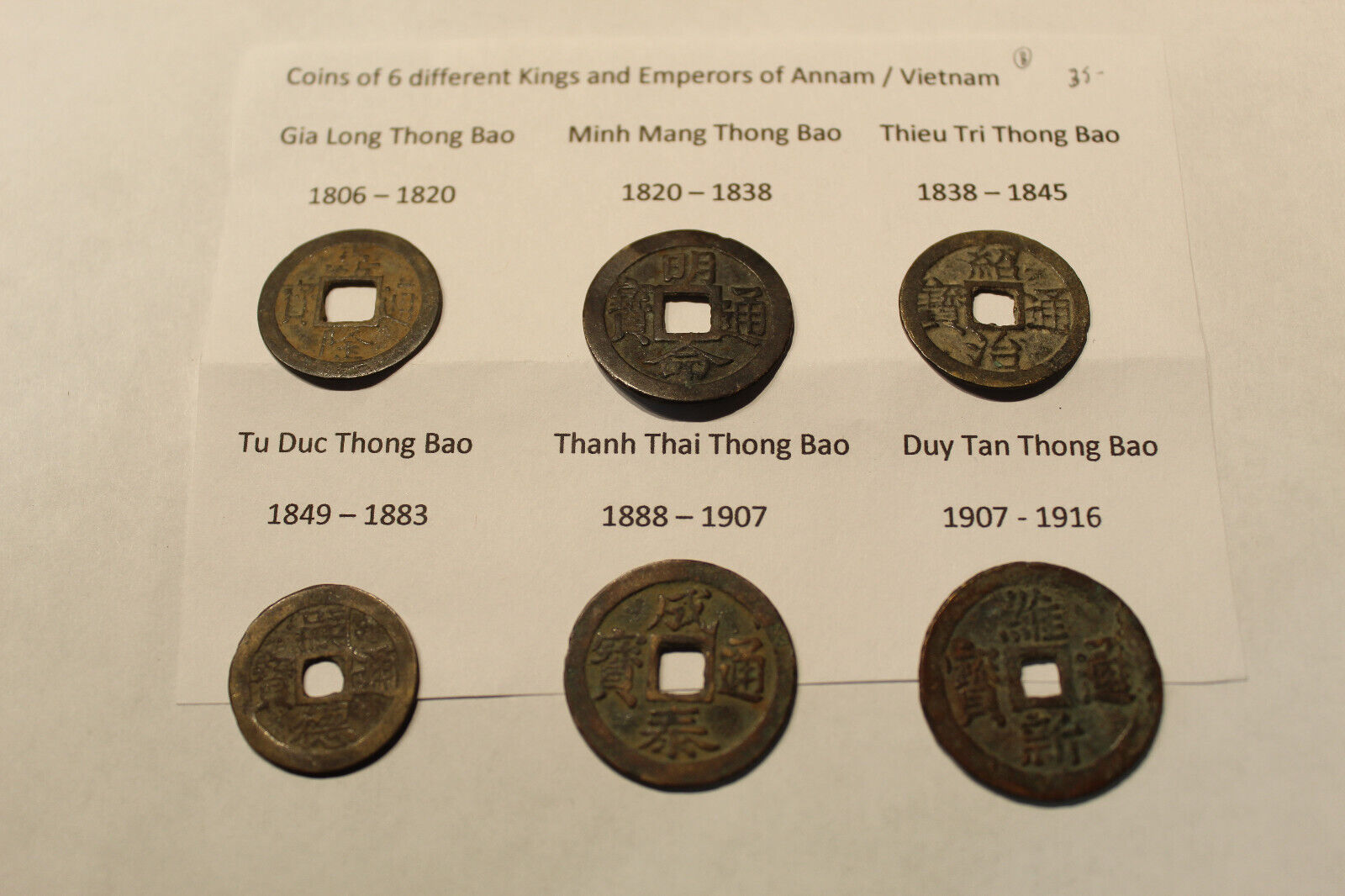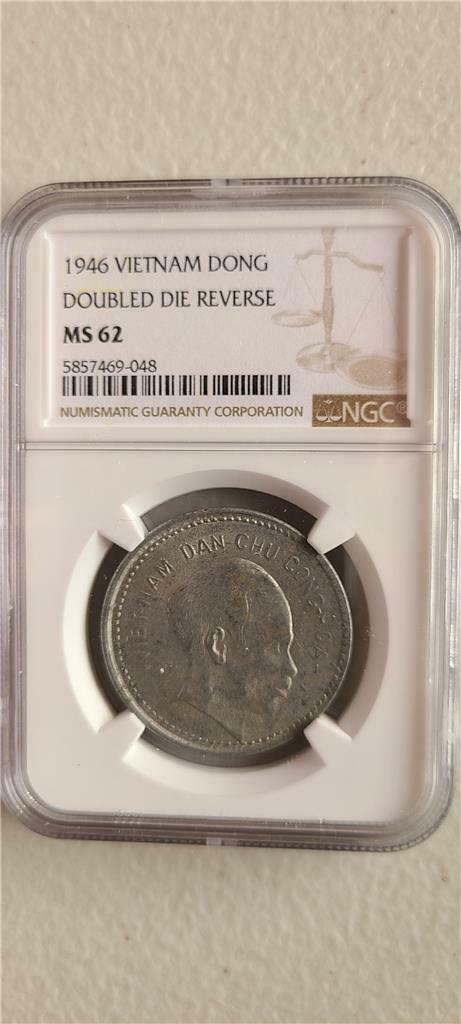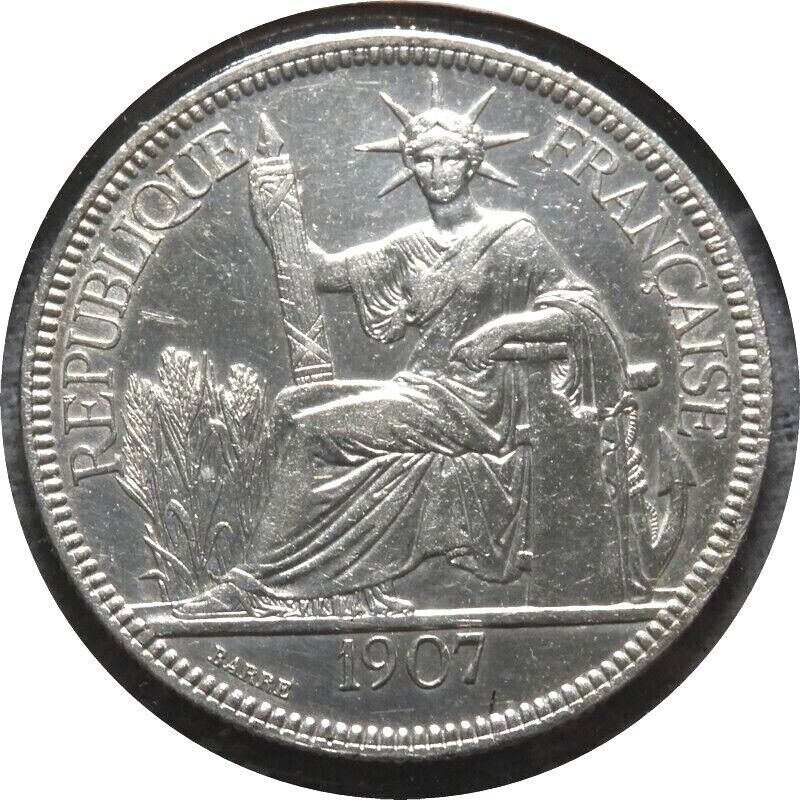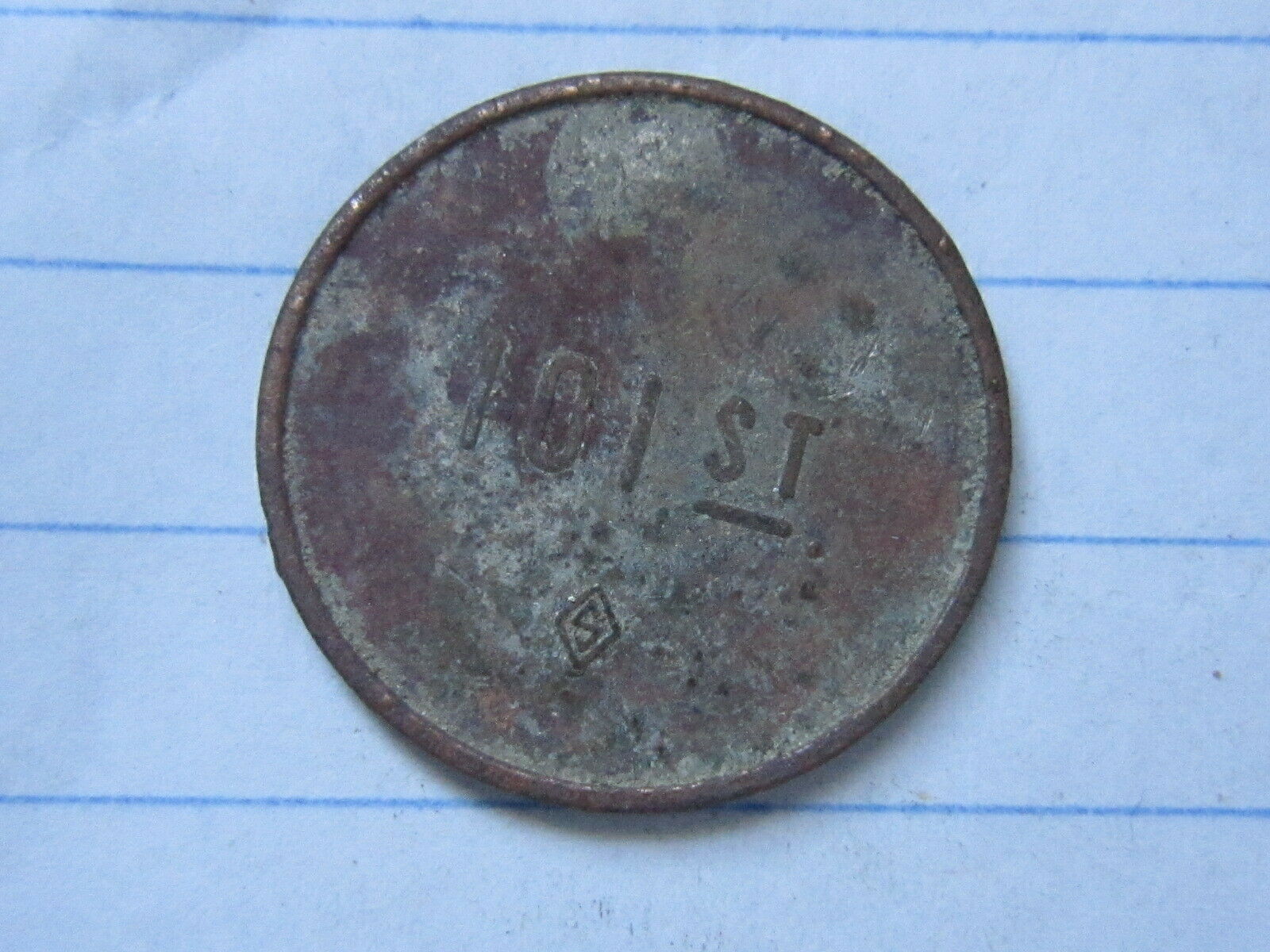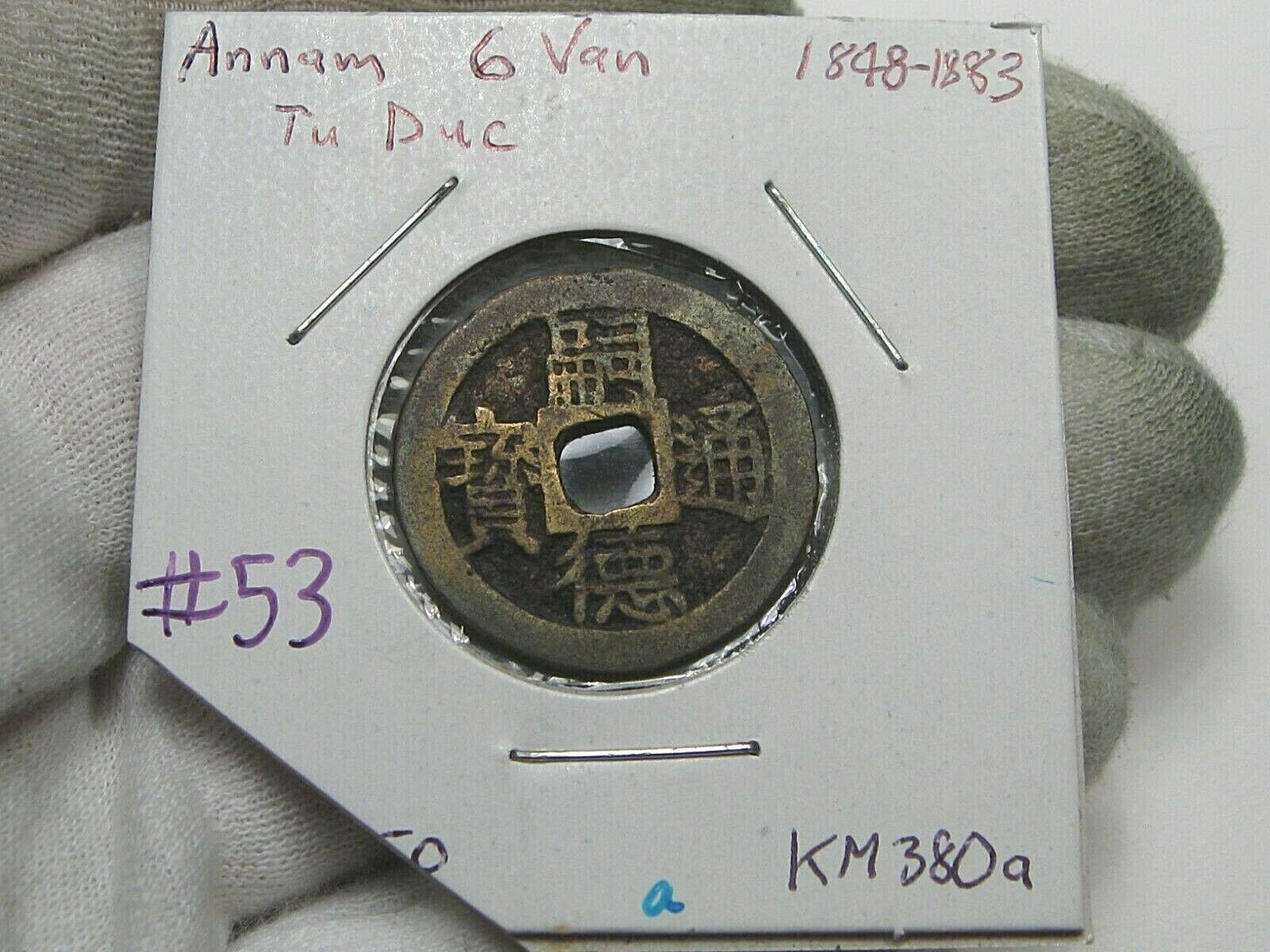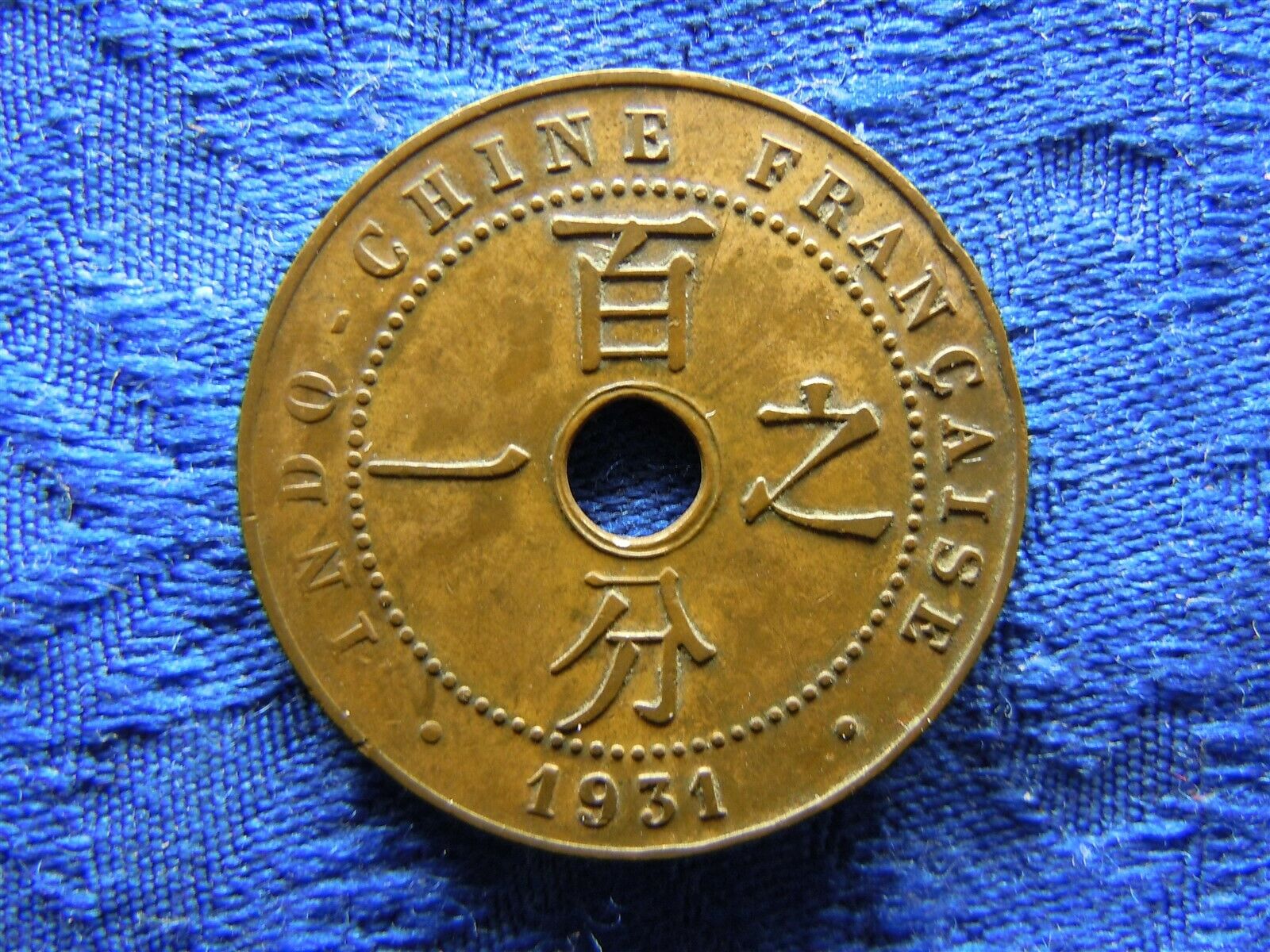-40%
1946, North Vietnam (Democratic Republic). Aluminum 5 Hao Coin. Gem! NGC MS-65!
$ 174.58
- Description
- Size Guide
Description
CoinWorldTV1946, North Vietnam (Democratic Republic). Aluminum 5 Hao Coin. Gem! NGC MS-65!
Mint Year: 1946
Denomination: 5 Hao
Reference: Lec. 3, KM-2.2.
Condition:
Certified and graded by NGC as MS-65!
Material: Aluminum
Diameter: 27mm
Weight: 2.4gm
Authenticity unconditionally guaranteed.
Bid with Confidence!
North Vietnam
, officially the
Democratic Republic of Vietnam
(
DRV
) (Vietnamese:
Việt Nam Dân Chủ Cộng Hòa
) was a state in Southeast Asia from 1945 to 1954 and a country from 1954 to 1976.
During the August Revolution following World War II, Vietnamese communist revolutionary Hồ Chí Minh, leader of the Việt Minh, declared independence from French Indochina on 2 September 1945, announcing the creation of the Democratic Republic of Vietnam. The Việt Minh ("League for the Independence of Vietnam") was a coalition of multiple Vietnamese nationalist groups, mostly led by communists after the reestablishment of the previously banned Communist Party of Vietnam in February 1951.
France moved in to reassert its colonial dominance over Vietnam which led to the First Indochina War in December 1946, a guerrilla war between France and the Việt Minh. The Việt Minh captured and controlled most of the rural areas in Vietnam which led to French defeat in 1954. The negotiations in the Geneva Conference that year ended the war and recognized Vietnamese independence. The Geneva Accords provisionally divided the country into a northern and a southern zone along the 17th parallel, stipulating general elections scheduled for July 1956 to "bring about the unification of Viet-Nam". The northern zone was controlled by the Democratic Republic of Vietnam and became commonly called North Vietnam, while the southern zone, under control of the French-established State of Vietnam was commonly called South Vietnam.
Supervision of the implementation of the Geneva Accords was the responsibility of an international commission consisting of India, Canada, and Poland. India represented the non-aligned, Canada the non-communist, and Poland the communist blocs. The United States did not sign the Geneva Accords and stated that it "shall continue to seek to achieve unity through free elections supervised by the United Nations to ensure that they are conducted fairly". In July 1955, the prime minister of the State of Vietnam, Ngô Đình Diệm, announced that South Vietnam would not participate in elections to unify the country. He said that the State of Vietnam had not signed the Geneva Accords and was therefore not bound by it.
Failure to unify the country by referendum led to the Vietnam War in 1955. The North Vietnamese People's Army of Vietnam and the South Vietnam-based Việt Cộng guerrilla fought against the military of South Vietnam (by then the Republic of Vietnam) and were backed by their communist allies, mainly China and the Soviet Union. To prevent other countries from becoming communist in Southeast Asia, the United States intervened in the conflict along with other anti-communist forces from South Korea, Australia and Thailand, who heavily supported South Vietnam militarily. The conflict spread to neighboring countries and North Vietnam supported the Pathet Lao in Laos and the Khmer Rouge in Cambodia against their respective US-backed governments. By 1973 the United States and its allies had been forced to withdraw from the war, this left South Vietnam alone and it was swiftly overrun by the superior Northern forces.
The Vietnam War ended on 30 April 1975 and saw South Vietnam come under the control of a Provisional Revolutionary Government, which led to the reunification of Vietnam on 2 July 1976, creating the Socialist Republic of Vietnam of today. The expanded Socialist Republic retained North Vietnam's political culture under Soviet influence and continued its existing memberships in international organisations such as COMECON.
Only 1$ shipping on each additional item purchased!



